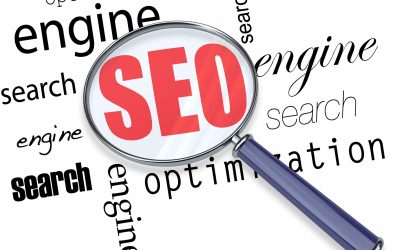For small businesses competing in today’s digital landscape, visibility is crucial — and Pay-Per-Click (PPC) advertising has become one of the fastest and most effective ways to achieve it. Whether you’re running local campaigns or targeting national audiences, PPC ensures your brand appears in front of potential customers at the exact moment they’re searching for your products or services.
However, managing ad spend effectively requires more than just setting up a few campaigns. It takes a strategic understanding of
PPC services for small business,
paid search marketing, and the role of a
Google Ads agency in maximizing every dollar spent.
Understanding PPC and Its Role in Small Business Growth
PPC is a digital advertising model where businesses pay a fee each time someone clicks on their ad. These ads appear on search engines like Google and Bing, as well as on social platforms such as Facebook, Instagram, and LinkedIn. Unlike organic search strategies, which take time to build traction, PPC delivers immediate visibility and measurable results.
For small businesses, this means leveling the playing field with larger competitors. With properly structured campaigns and precise targeting, even companies with limited budgets can compete for valuable keywords and local audiences.
Some common PPC ad types include:
- Search Ads: Text-based ads shown at the top of search engine results pages (SERPs).
- Display Ads: Visual banner ads appearing across Google’s Display Network.
- Remarketing Ads: Ads targeting users who have previously visited your website.
- Local Service Ads: Designed specifically for service-based businesses targeting nearby customers.
These formats allow small businesses to reach the right audience efficiently, ensuring that each click has the potential to turn into a lead or sale.
The Benefits of PPC Services for Small Business
1. Immediate Visibility
Unlike SEO, which builds momentum gradually, PPC offers instant exposure. Once your campaign is launched, your business can appear in top search positions within hours.
2. Highly Targeted Reach
PPC platforms like Google Ads allow for refined targeting based on location, age, interests, and even device type. For local businesses, this means your ads are seen by nearby users most likely to convert.
3. Budget Control and Measurable ROI
You can set daily or monthly budgets to control spending. Every click, impression, and conversion is trackable, allowing you to measure success in real time. This data-driven approach ensures that no budget is wasted.
4. Enhanced Brand Recognition
Even when users don’t click on your ads, simply appearing at the top of search results builds brand familiarity. Over time, this increased visibility translates into higher trust and more direct visits.
5. Scalable Growth
PPC allows you to start small and scale up. As campaigns prove successful, you can increase your investment and expand targeting areas for greater reach.
Making the Most of Your Ad Budget
PPC success doesn’t come from spending more — it comes from spending smarter. Here’s how small businesses can make the most of their ad budgets.
1. Focus on Local Targeting
For small businesses, local campaigns often yield the best return. Using geo-targeting ensures your ads appear only in areas where your customers are located. For example, a local plumbing company in Austin can limit its ads to that region instead of paying for clicks from other cities.
2. Use Long-Tail Keywords
Long-tail keywords — longer, more specific search phrases — typically cost less and attract higher-quality leads. Instead of targeting “lawyer,” try “family lawyer in Phoenix” or “small business attorney near me.” These searches show stronger buying intent.
3. Optimize Ad Copy and Landing Pages
Your ad should clearly communicate value, and the landing page it links to should deliver on that promise. Use persuasive copy, fast load times, and clear calls to action to boost conversions.
4. Implement A/B Testing
Testing different versions of ads helps determine what resonates best with your audience. Experiment with variations in headlines, descriptions, and visuals to improve click-through rates (CTR).
5. Monitor and Adjust Frequently
PPC campaigns are not “set it and forget it.” Regularly review performance metrics like CTR, cost per click (CPC), and conversion rates. Continuous optimization ensures your ads stay competitive and cost-effective.
The Role of a Google Ads Agency
Running a successful PPC campaign requires a blend of creativity, technical know-how, and data analysis. A
Google Ads agency brings all of these elements together. They understand keyword bidding strategies, audience segmentation, and algorithm changes — allowing small businesses to focus on operations while professionals handle campaign performance.
Partnering with an
experienced and credible marketing company gives you access to insights and tools that maximize your ad spend. They can identify underperforming ads, optimize targeting settings, and design remarketing strategies that convert past visitors into paying customers.
An agency also helps maintain compliance with Google’s advertising policies and ensures that campaigns follow best practices, reducing the risk of wasted spend or disapproved ads.
How Paid Search Marketing Complements Other Channels
While PPC provides quick results, it’s even more powerful when combined with other digital marketing efforts like SEO and social media.
- SEO and PPC Synergy: Running both ensures that your business appears in both paid and organic results, increasing visibility and trust.
- Social Media Integration: Paid social ads can retarget users who interacted with your PPC campaigns, reinforcing brand recognition.
- Content Marketing Connection: PPC can be used to promote blogs or guides that educate users, nurturing them toward becoming clients.
Together, these channels create a full-funnel marketing strategy that drives awareness, consideration, and conversion.
Maximizing ROI Through Data and Analytics
The true strength of PPC lies in its measurability. Platforms like Google Ads provide detailed insights into every aspect of your campaign — from keyword performance to audience engagement.
By analyzing this data, small businesses can make informed decisions, identify which keywords drive the most conversions, and adjust bids or ad placements accordingly. Over time, this continuous optimization process leads to higher ROI and more efficient use of the ad budget.
Final Thoughts
PPC is one of the most powerful tools available to small businesses looking to compete in crowded markets. When used strategically, it delivers measurable, scalable, and immediate results.
By leveraging
PPC services for small business, partnering with a skilled
Google Ads agency, and combining these efforts with
paid search marketing insights, local businesses can ensure that every advertising dollar contributes to sustainable growth.
The key isn’t just spending money on ads — it’s making your budget work smarter, reaching the right audience, and building a consistent presence that drives results long after the campaign ends.



